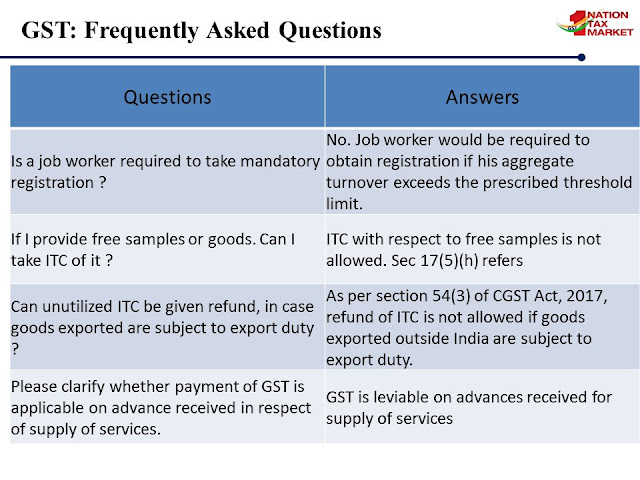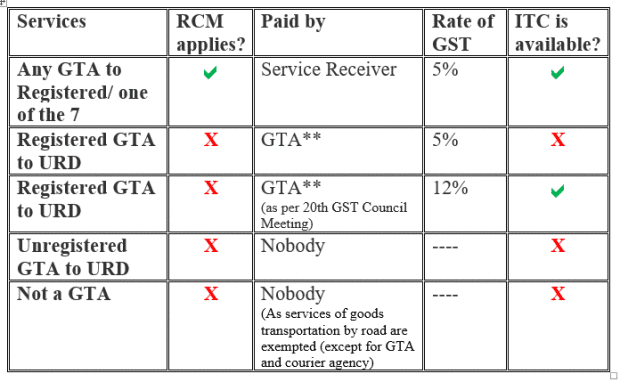Impact
of GST on Insurance
The old tax
rate on basic insurance services was 15 per cent, comprising of 14% service
tax, .5% Swachh Bharat Cess, and .5% Krishi Kalyan Cess. After GST, the tax rate will be levied at the standard rate of 18% on all types of
insurance policies, including life insurance, health insurance
and general insurance. In case of
normal insurance plans such as term insurance and health insurance, the
previous tax rate of 15% has been replaced by the GST rate of 18%, which will
certainly increase the premium cost making it costlier for people to buy
insurances.
For ULIPs
(Life insurance) policies, where insurance is usually integrated with some kind
of investment, the increased GST is applicable only to the insurance amount and
not on the investment part. For example, if your gross premium amount is
Rs.1000, of which Rs. 400 is the investment and Rs. 600 is the insurance
premium; the 18% GST would be levied only on Rs. 600. The policies
associated with single premium annuity are liable to pay 10% of the premium
amount as GST. For endowment
policies, GST will be levied at the standard rate of 18% on 25 per cent of the
first year premium and 12.5 per cent on the subsequent premium of following
years. So, if your endowment policy has an annual premium of Rs. 1000, then 18%
GST will be applicable on Rs. 250 (25% of the premium amount) for the first
year, and the same GST rate on Rs. 125 (12.5%) for subsequent premiums. In short, the
first year premium will be liable for 4.50% tax as opposed to existing 3.75%
rate, while subsequent annual premiums will be taxed at 2.25%. If a life
insurance policy is only for risk cover and doesn’t involve any savings or
investment, the entire premium is liable for 18% GST. Other
insurance services such as fire insurance, theft insurance, vehicle insurance,
marine insurance, etc are also under the same 18% GST rate.As for the
impacts of GST on insurance policies, the premium
amounts for policyholders have increased due to the increased tax rate. This is
applicable to both existing and new taxpayers. So, they will now have to pay
tax at 18% rate on all their life cover premiums. Insurers,
however, are not affected very much by the introduction of GST as they continue
to pass their tax liabilities on to the consumers. Corporate
policyholders having general insurance are eligible for input tax credit on the
tax paid on insurance premiums. Life and health insurance holders, however, are
not liable to claim ITC on premiums for insurances being used for personal
purposes. This is also true for corporate policyholders having life/health insurance
for their workers. Note: Life insurance schemes by Government are exempt from GST. Impact
of GST on Bank Service Charges The old
service tax rate of 15% on banking services is now replaced with 18% GST. As a
result, banking has become costlier for the customers.The old tax
rate of 15% on interbank ATM transactions and branch transactions has been
replaced by 18% GST. All other
banking services like GST on bank charges that
were previously taxable under service tax are now taxable under the revised
rate of GST. Banks and finance companies are allowed to pass on the tax
liabilities to their customers. Intra-branch
services will also be taxable under GST at the same standard rate, however, ITC
on bank charges under GST will be available on the same. The immediate impact of GST on banks is in the form of an increase in administrative and
compliance work, which leads to increase in operational costs of these banking
organizations. Business/corporate consumers are able to claim ITC on the taxes
paid by them for official (business-related) banking services. To conclude,
GST has increased the operating costs for banking and financial organizations.
Policyholders are now paying a higher premium on all types of insurances.



















